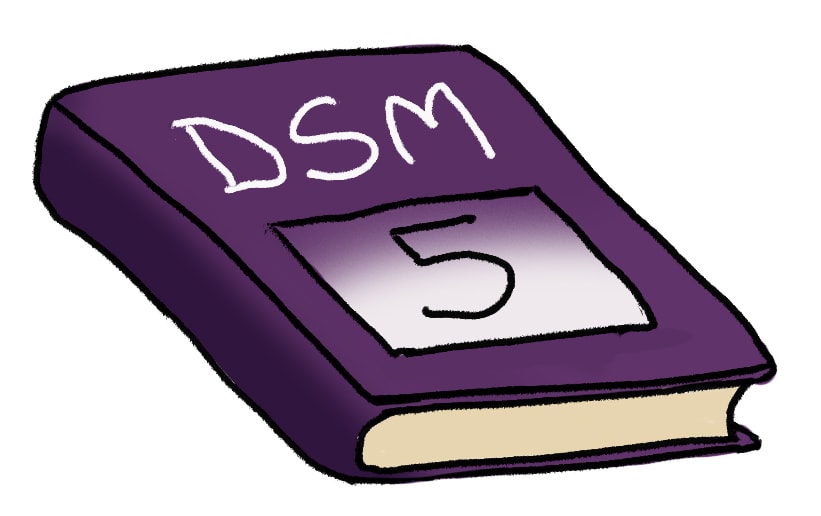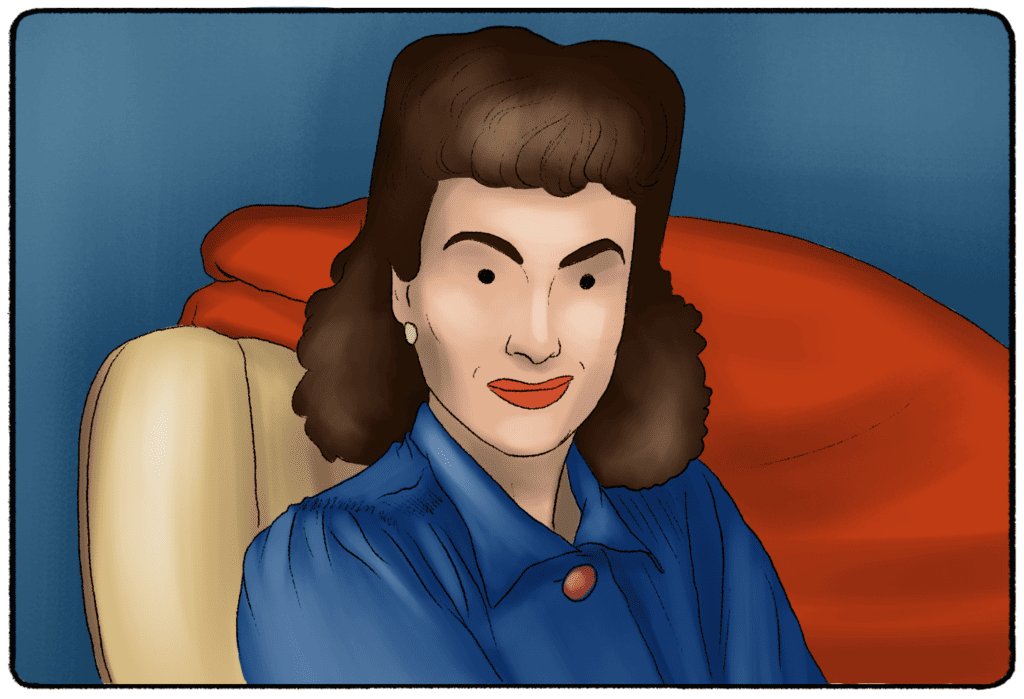Have you ever heard someone described as a "megalomaniac?" It's not used as frequently anymore but describes a person that still exists among us: a narcissist. In this article, we will explore the definition of a megalomaniac and how it may apply to politicians, people in positions of power, or people you may deal with in your everyday life.
What Is The Definition of Megalomaniac?
Megalomaniac comes from the Greek words "μεγαλο", or megalo, meaning grand or large, and "μανία,” or mania, meaning frenzy or madness. Together, a megalomaniac is someone who displays manic behavior, often paired with delusions of grandeur and an enhanced sense of self.

Someone who fits these classic definitions of megalomania believes that they have larger powers than others, and have the ability to yield that power over large populations. In the most extreme cases, they think that they can control the world. We base our actions on our beliefs. A megalomaniac will act as though they have or deserve control over everyone around them.
You won’t find “megalomania” in WHO’s International Statistical Classification of Diseases and Related Health Problems or the APA’s Diagnostic and Statistical Manual of Mental Disorders. Nowadays, people who have megalomaniac tendencies may be diagnosed with narcissistic personality disorder.
Signs of Megalomania (Narcissistic Personality Disorder)
Narcissistic Personality Disorder is one in which, essentially, a person believes the whole world revolves around them. A person with NPD may not try to conquer the world, but they often try to exert power and control over other people in their lives. They act without empathy or consideration for the needs of others, and may even hide these intentions to better manipulate others.

According to the Diagnostic and Statistical Manual of Mental Disorders, a person with NPD possesses at least five of these nine traits:
- “Grandiosity with expectations of superior treatment from other people
- Continually demeaning, bullying and belittling others
- Exploiting others to achieve personal gain
- Lack of empathy for the negative impact they have on the feelings, wishes, and needs of other people
- Fixation on fantasies of power, success, intelligence, attractiveness, etc.
- Self-perception of being unique, superior, and associated with high-status people and institutions
- Need for continual admiration from others
- Sense of entitlement to special treatment and to obedience from others
- Intense envy of others, and the belief that others are equally envious of them”
This can look like many things. A person with NPD may act selflessly, only to fulfill big goals and obtain power. Maybe they use manipulation to get there, or maybe they use the charm and charisma that they know they have. Narcissists tend not to care who they hurt along the way. If someone criticizes them, the person may act out.
A trained professional must interview an individual before they can be diagnosed with Narcissistic Personality Disorder. Less than 1% of the population is said to be a narcissist. According to current statistics, men are more likely to have NPD than women.
Examples of Megalomaniacs in Movies
Some of Hollywood's most famous megalomaniacs include:
- Gilderoy Lockhart
- Patrick Bateman
- Vizzini
- Gregory Anton
- Joan Crawford

What Causes Narcissistic Personality Disorder?
You might be surprised to hear that only 1% of the population are considered narcissists. Some of the characteristics I just mentioned might describe a colleague, an ex, or the leader of your country.
In 2009, two psychologists published The Narcissism Epidemic. It argues that American culture, social media, and other factors have turned all millennials toward narcissism. It’s probably not the first time that you’ve heard someone accusing millennials of being “entitled,” spoiled, or feeling the need to be constantly validated by social media.
So what does that mean? We’re all megalomaniacs? That we’re no better than the world leaders who have been accused of having NPD?
Not exactly. Remember, a person needs to carry at least five of the nine traits to be considered for NPD. Asking for engagement on your social media is a far jump from exploiting others or having a lack of empathy. But maybe these psychologists may be onto something. There is no clear cause of narcissistic personality disorder. But multiple experts have suggested that American culture could contribute to these traits.
Some experts suggest that genetic factors could contribute to NPD and related personality disorders. Others say that “nurture,” rather than “nature,” is to blame. It could be a culture that tells children that they can do anything, and they are a unique and special person. Lack of authentic validation from teachers, parents, or other figures may also lead to NPD. Oversensitivity, abuse, or unreliable caregiving may also contribute.
Again, there is still a lot of research that needs to be done before any direct causes of NPD can be confirmed. And it’s not always easy to study NPD - not a lot of narcissists seek help from mental health professionals. Mainly because they feel that they’re above it or don’t need it.
How To Deal With A Megalomaniac
Dealing with a megalomaniac or narcissist may be inevitable. Narcissists are parents, employers, and neighbors. They are still people with goals and dreams, but they certainly go about achieving them in a different way. If you have a narcissist in your life, take the following steps to set boundaries for yourself.
Continue Educating Yourself on Narcissist Personality Disorder
You are already making great progress in dealing with the megalomaniacs/narcissists in your life. Educating yourself on the habits of NPD will help you anticipate and understand their behavior. It can be hard to accept that some people, especially relatives or people in your life, don’t care about your feelings or go out of their way to hurt them for your personal gain. Once you see the reality of your situation, it’s easier to set boundaries or put your foot down when the narcissist’s behavior is hurtful or unacceptable.
Set Limits
Boundaries are not about telling people what they can and can’t do. Narcissists are likely to perform harmful behaviors, even when they are told they cannot. Think of boundaries as a way of defining how you will allow people to treat you. Do you want to create a space for yourself where other people can call you names? Do you allow people to lie to you? Exploring these boundaries will help you explore your self-confidence. If you have difficulty exploring your boundaries or defining your limits, reach out to a mental health professional.
Enforce Limits
Defining clear limits and boundaries is the first step toward enforcing them. When you know that you do not accept lies from other people, you can more calmly enforce this boundary with the narcissists in your life. Harmful or abusive behavior should never be accepted. If you find that this narcissist is starting to display behaviors outside of your limits, remind yourself that it’s time to take a step back and surround yourself with people who treat you within your limits.
Appeal to the Narcissist’s Sense of Grandeur
How do you tell a megalomaniac to cut it out? How do you tell them that they’re wrong and a total narcissist? Sadly, this direct approach rarely works the way a person anticipates. Megalomaniacs are solely focused on getting their way. They are unlikely to back down in the face of harsh criticism or emotionally-charged confrontation. If they believe they are in the right, which they typically do, they will take more extreme measures until you will admit that they are in the right, too. This is why many narcissists take to gaslighting in order to convince another person that they are in control. When a person begins to doubt their own reality, they are more likely to agree with the narcissist, who is confidently guiding them to agree with the narcissist’s point of view.
This doesn’t mean narcissists are hopeless, or you should ignore their behavior entirely. If you need to speak to a narcissist about their behavior, appeal to their megalomania. Let them know that you are acting in their best interests and your best interests. Offer feedback in the form of a “feedback sandwich.” Your critiques or suggestions should be sandwiched between compliments or praise. This will prevent the narcissist from feeling threatened or feeling like they have to resort to extreme measures to get their way. Be gentle and brief, but be firm when the narcissist does cross the line.
Focus on Your Self-Care
Narcissists require a lot of attention. Friends or family members can easily get caught up in the narcissist’s behavior. Venting is healthy, but when the narcissist is taking up a lot of your time, you need to pivot to focus on yourself. Do not allow a megalomaniac to hold you back from thinking about your dreams, your goals, and your desires. Turn the attention onto yourself and how you can “fill your cup.” This form of self-care will allow you to live a more fulfilling life and better prepare you for dealing with a narcissist. People with NPD thrive on those who are weak, drained, and easy to manipulate. Don’t allow yourself to be that person.
Find Support in Others
Dealing with a narcissist, be it at home or work, can feel very isolating. Megalomaniacs also thrive on isolated people who do not have support or strong ties to reality. Build a support system to ground you when a narcissist tries to suck you into their orbit. Narcissistic abuse support groups are available for people who may be dealing with this type of person and needs validation. Stick around people who genuinely care for your feelings. A therapist or counselor can also help you navigate your relationships with narcissists, create boundaries, and decide when it’s time to cut ties.
Remember, you are not alone in this. Many, many people lead successful lives outside of their relationships with megalomaniacs. The megalomaniac in your life likely does not want you to succeed or may take steps to prevent you from reaching your goals. You do not have to allow them to continue this behavior. Your life is better lived in pursuit of your goals.
Treatment for Megalomania
Symptoms of NPD or megalomania can be treated, but again, only if the person is willing to enter treatment in the first place. Different forms of talk therapy may be used to help a person with NPD “come down to earth” and see themselves in a more realistic light.
We all know someone who displays at least one of the “signs” of NPD. Without a sense of empathy or a realistic picture of themselves, it can be hard to get that person to change. The best way to deal with a megalomaniac or a narcissist is to set boundaries. Don’t give into the delusions that the person has created for themselves. Don’t expect the person to show empathy toward you if you need help or are trying to explain your feelings. And don’t take their behavior personally - they are only trying to hurt you because they likely don’t know any better.



